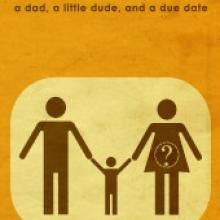lessons
Sometimes I wonder if anyone saw what was happening to me in that nightclub. I wonder if someone chose to ignore it or if they genuinely didn’t know what to do. I think these are common reactions when someone witnesses an assault or is faced with a situation that could result in one. As a bystander, there are some steps you can take to save yourself, your friends, or people around you...
AS THE U.S. prepares to officially (but not completely) pull out its military from Afghanistan by the end of 2014, some wonder whether it all was a waste. More than a decade of war has cost tens of thousands of lives and hundreds of billions of dollars. But the balance sheet of “lessons learned” shows some less-depressing calculations.
In the last several years, U.S. generals have repeatedly told Congress and the U.S. public that “there is no military solution” to the war in Afghanistan. This marks a significant shift in military thinking. In the early 2000s, the boastful, overconfident views that wars in Afghanistan and Iraq would be quick and easy outnumbered more cautious and skeptical military voices. If nothing else, more military leaders today are forthrightly speaking out against the fantasy of firepower solutions to complex political problems.
The U.S. and its Western allies are also learning a related lesson: The lack of legitimate governance is a fundamental cause of much of the world’s violence. Afghanistan’s political leaders who opposed the Taliban became de facto Western allies, even though many had ruled by force and racked up their own long list of human rights abuses. In the rush to set up a new government to replace the Taliban, the West propped up corrupt and tyrannical warlords as provincial governors, dooming hopes for an Afghan democracy and authentic leaders with popular support.
Counterinsurgency projects attempted to pull support from the Taliban and other insurgents by winning Afghan hearts and minds so they would trust their government. But Western military forces learned that free handouts of Western aid money could not fundamentally change the corrupt nature of the Afghan government or its public image.
Mattias: “Dad, I forgive you.”
Me: “But I didn’t do anything wrong.”
Mattias: “That’s okay. I forgive you anyway.”
— Mattias, 5 years, 1 month
I’m a big, gigantic jerk of a dad.
My son, Mattias, is a charmer. As introverted and crowd-averse as I am, he feeds off the energy of a group. His uncle Matt calls him “Slumdog Millionaire” because he’s convinced that, if you dropped him in the middle of Calcutta with nothing but the clothes on his back, he’d be running the joint inside of six months.
This particular day, Mattias was working on a smaller scale, charming his uncle Joe out of five bucks over a family dinner. The problem is that, about half the time, he loses the money before it makes it into his bank. So I offered to carry it for him while we were out running some errands later on.
He asked for it back after a while, and I explained that if he lost it, there were no refunds. I figured, though, that even losing the money was a lesson worth learning.
Sure enough, that evening at dinner, he dug into his pocket for his cash and found nothing.
It is with death that Dickens begins his story and it is with death that Scrooge completes his journey with the Ghost of Christmas Yet to Come.
Scrooge hears other businessman saying that they wouldn’t attend the funeral unless there was sure to be lunch served. Men for whom he had great business esteem gave no more thought to his death than they did the weather. There were thieves who stripped the clothes off his dead body and the curtains from around his bed.
He begged the Spirit to show him a scene in which some person, any person, was moved to emotion at his death. The Spirit brought him to the house of a debtor who rejoiced with his wife at the death of Scrooge because now they might have time enough to pay back their loan. When he was shown the Cratchit household there was no mention of Scrooge at all, only mourning for the passing of Tiny Tim.



